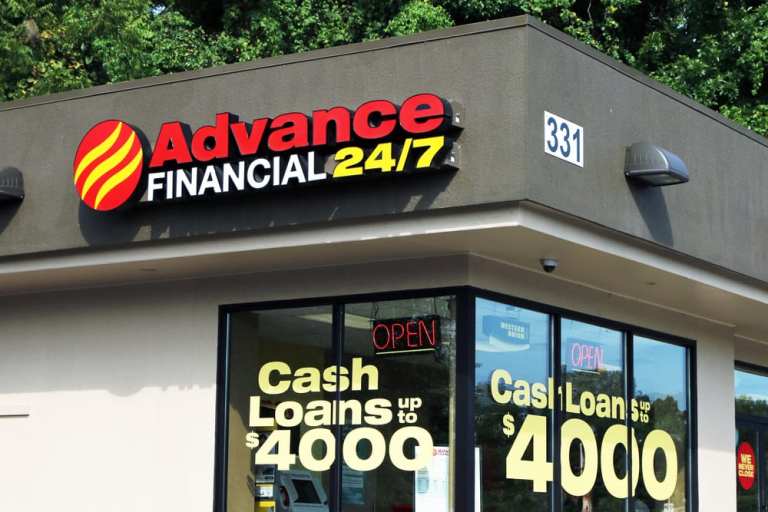More Regulatory Trouble Could Be Heading Short-Term Lenders’ Way

Keeping track of the legal status of short-term lending in the U.S. – which encompasses financial products such as payday loans, pawn loans and title loans – has become something of a game of “follow the bouncing ball” over the last few years. At the state level, all kinds of new legislation has been passed to cap interest rates, extend loan terms and more or less limit the better-known excesses of a subset of lending services that, fairly often, tends to be mentioned in the same breath as phrases like “predatory business model” and “unending cycles of debt.”
But on the federal level, the story has been quite a bit more complex and winding. The CFPB first started discussing reforming the rules governing payday loans and other forms of short-term lending as far back as 2012. That “discussion” turned into several years of meetings, hearings and requests for shareholder input, culminating in the release of a final set of payday lending rules in late 2017, set to go into effect in August of 2019.
But that date came and went, and the new rule didn’t go into effect. After about a year of hinting that the payday lending rule would likely undergo some renovation once the CFPB was officially under new management, as of January 2019, the CFPB officially hit the pause button and deferred implementation of the rules until August 2020.
The delay was applauded in some segments but loudly panned in others, particularly among Democratic lawmakers. In a hearing before the House Financial Services Committee last month, CFPB Director Kathy Kraninger was taken to task by Committee Chairwoman Maxine Waters for being too lackadaisical in her efforts to keep the agency focused on its statutorily defined mission of protecting consumers from dishonest financial services players.
“You have helped payday lenders by moving to delay and weaken the Consumer Bureau’s payday, small-dollar and car title rule, which would have put a stop to abusive payday loans,” Waters noted.
That situation remains at a stalemate for the time being, and thus it looked as though federal regulation for short-term, non-bank loans was likely to be a back-burner issue until at least late 2020. But appearances can be deceiving, as a bi-partisan effort to rather drastically curtail the interest rates that short-term lenders can assess has recently thrust payday lending regulation back into the limelight.
The Veterans and Consumers Fair Credit Act
Modeled after the Military Lending Act first implemented in 2006, the Veterans and Consumers Fair Credit Act is designed to put a rigid cap on all forms of short-term loans, according to its sponsors. Today, those interest rates often reach well into the triple digits, and would be unaffected by the CFPB’s payday lending rules. The new bill would seek to drop that figure to a high of 36 percent.
And the bill, apart from being unusual in the breadth of its scope, also has the rare distinction of being bipartisan in its support. Republican Rep. Glenn Grothman of Wisconsin is co-sponsoring the bill in the House with Democratic Rep. Jesus “Chuy” Garcia of Illinois. Although the bill is proposed by Senators Sherrod Brown, Jack Reed and Jeff Merkley, all of whom are Democrats, the 2006 legislation on which it is based enjoyed wide bi-partisan support.
The change, Rep. Grothman noted, is not about politics so much as it is about common-sense limits on an industry that studies have shown can have an adverse effect on consumers.
“We’ve already had a bill dealing with military personnel and military bases that’s proved to be wildly successful,” Grothman told CNBC. “If you just leave it there, it leaves you with the impression that we have to protect the military, but we’ll let [payday lenders] run amok and take advantage of everyone else.”
Will the New Law Pass?
There have been many attempts to create support for federal payday lending laws, most of which never even make it to a vote. Notably, the issue is complicated. Opponents of payday loans tend to view them as vicious debt traps, pointing to industry complaints that a 36 percent rate cap would essentially put them all out of business as evidence of the fact that the business model is built to gouge customers.
But proponents note that for all the complaints about payday lending, comparatively few come from those who actually use them. The CFPB’s three leading areas for customer complaints are credit rating agencies, debt collectors and mortgage underwriters. Payday and other short-term lenders don’t even make the top five.
Plus, for those have a real need for short-term funding, simply eliminating the payday lending model by statute doesn’t solve their problem. Expensive debt is bad for a consumer, financially speaking – but for someone to lose their job because they couldn’t afford a car repair to get to work is a much worse outcome. If Congress hopes to ban payday lending with an interest rate cap that makes the model unworkable, it seems worth asking the question: What will replace payday loans for the customers who are using them today?
But this go-round is also a bit different – namely because it actually has bi-partisan sponsorship and an advocate in Grothman, which indicates some commitment to a more conversational and less adversarial process in putting reasonable laws into place.
“It’s a shame when people work so hard for their money and then lose it, and really get nothing in return but a high interest rate,” he noted.